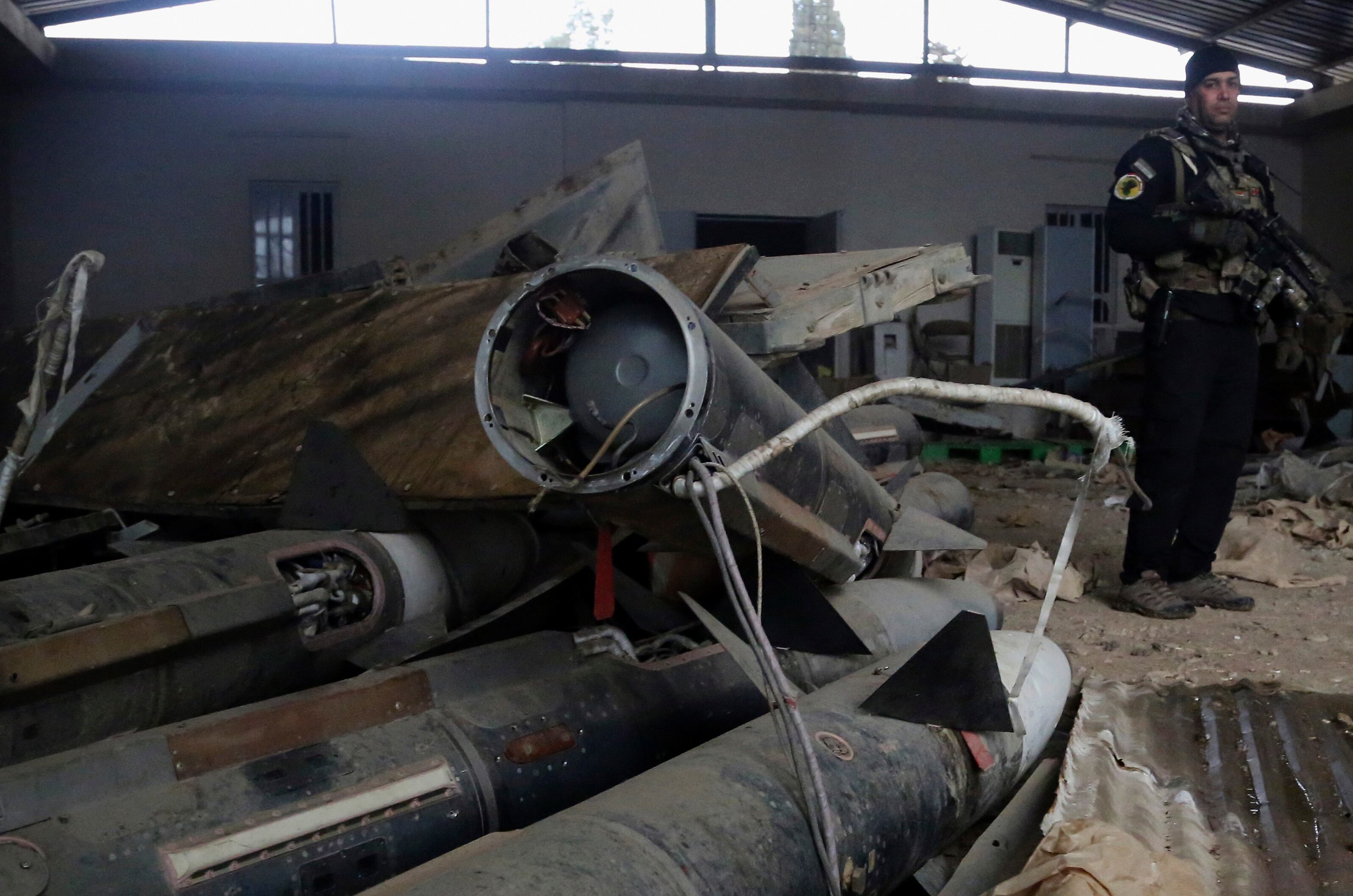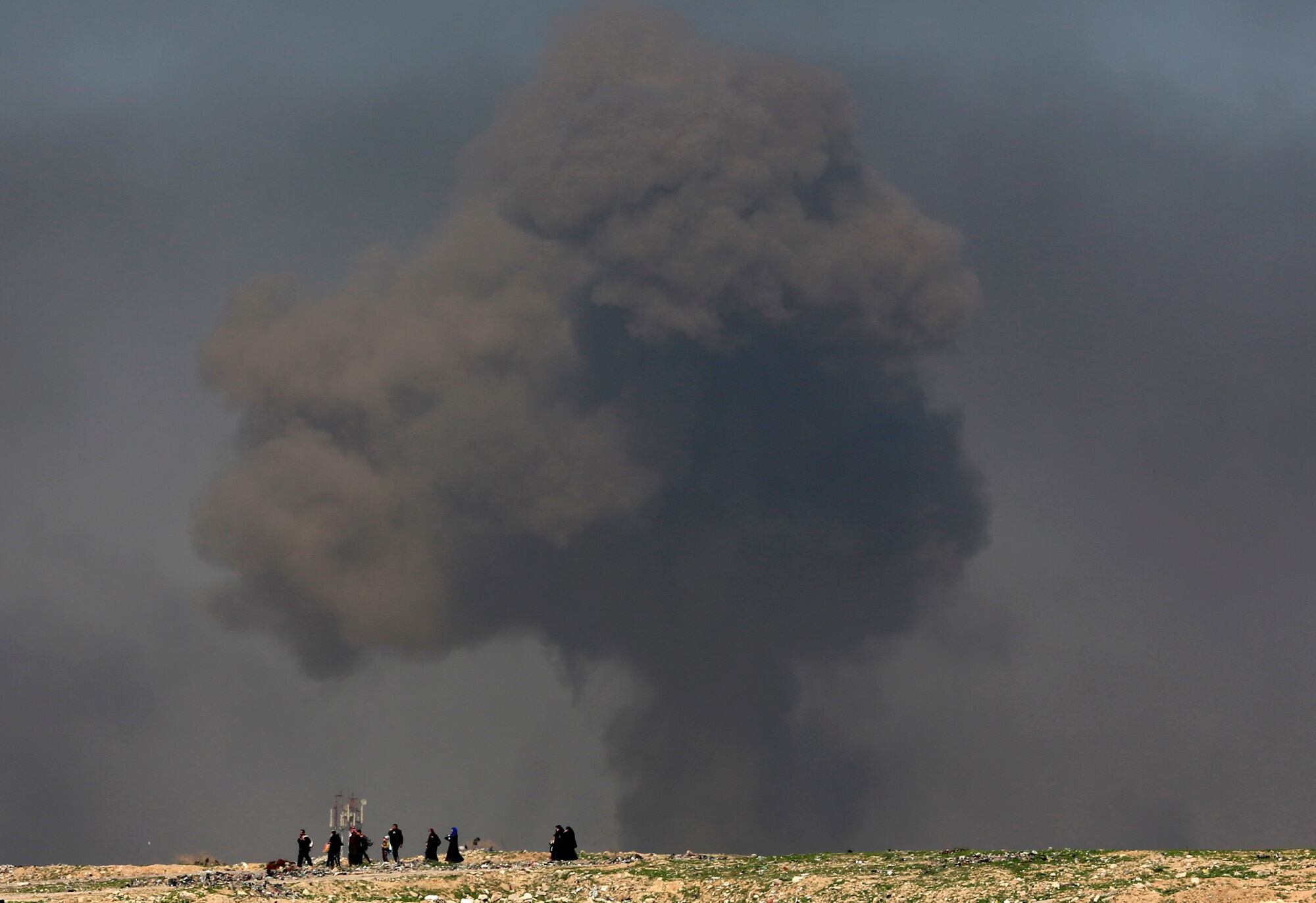UNITED NATIONS (AP) — Iraq's U.N. ambassador said Friday there is no evidence that the Islamic State extremist group used chemical weapons in an attack in Mosul, the country's second-largest city.
Mohamed Alhakim told reporters ahead of a closed Security Council meeting on a reported chemical attack that he had spoken to officials in Baghdad and informed U.N. disarmament chief Kim Won-soo of the lack of evidence in advance.
The alleged attack occurred last week in eastern Mosul, an area declared fully liberated by Iraqi forces in January. The attack hit a neighborhood along the Tigris River, which roughly divides the city in two. Doctors in an urgent care hospital in the nearby city of Irbil say they began receiving patients showing symptoms of chemical weapons exposure on Thursday.
But Alhakim said "there is really no evidence that Daesh has used this chemical weapon," using the Arab name for the Islamic State group.

A soldier with Iraq's special forces troops inspects Russian surface-to-surface missiles found in a warehouse in the eastern side of Mosul, Iraq, Saturday, Jan. 28, 2017.
Photo Credit: null
If chemical weapons are used, he said, there is evidence of people injured and material left on the ground but "we don't have anything from the operation in Mosul that tells us we have that."
But after the closed consultations, Britain's U.N. Ambassador Matthew Rycroft, the current council president, said Iraq's investigation isn't over.
"We expressed concern over reports of possible use of chemical weapons by Daesh, and we look forward to the results of Iraq's investigation into those allegations," he said.
Rycroft said Kim briefed the council on his meeting with Alhakim who told him "there is no evidence of the use of chemical weapons as discovered so far ... but I don't think that this was the definitive end of this investigation."

A large plume of smoke rises during fighting between Iraqi security forces and Islamic State militants as civilians walk toward Iraqi security forces after fleeing their homes on the western side of Mosul, Iraq, Thursday, March 9, 2017.
Photo Credit: null
The U.N. humanitarian coordinator in Iraq, Lisa Grande, had warned that the alleged use of chemical weapons in Mosul, if confirmed, would be a war crime and a serious violation of international humanitarian law.
Alhakim said the Organization for the Prohibition of Chemical Weapons, the international watchdog, sent a letter to Iraq saying it was ready to come and help if there were any indications of chemical weapons use.
IS has used chemical weapons in Iraq and Syria at least 52 times according to a report published late last year by IHS conflict monitor, a London-based research and intelligence gathering group. The report said that at least 19 of the 52 attacks took place in and around Mosul.
Iraqi and U.S.-led coalition officials have repeatedly expressed concern regarding ISIS chemical weapons attacks. However IS-claimed insurgent attacks in Iraq and attacks targeting civilians attempting to flee Mosul cause far greater numbers of injuries and deaths to civilians.



